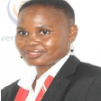International Journal of Modern Education and Computer Science (IJMECS)
IJMECS Vol. 8, No. 11, 8 Nov. 2016
Cover page and Table of Contents: PDF (size: 552KB)
On Overcoming Transitional Challenges of First Year Students in Technology-Based Educational Settings
Full Text (PDF, 552KB), PP.28-35
Views: 0 Downloads: 0
Author(s)
Index Terms
First Year, Students, Technology, Computer, Module, University
Abstract
Universities in South Africa (SA) are facing several challenges due to the influx of students with diverse backgrounds entering the first year. One of such challenges is the use of technologies for teaching and learning. Institutions in the rural areas are flooded with first year students characterized as under-prepared, educationally underprivileged and had little or no access to computer usage prior to their enrolment. These qualities impedes their transition into the computer-based learning system and other technologies that supports teaching and learning. Moreover, the students are not given the needed assistance when enrolled. Orientation programme that would have been a leverage is only informative and not supportive in nature. Thus, an effective solution requires orientation programme to be supportive. It should involve assessing students’ profile during their first year registration to provide them with the needed assistance in terms of technologies usage. This paper conducted a pilot survey over a sample of first year entering students in the University of Venda (UNIVEN). The objective was to assess students in terms of technology-related uses, expectations, experiences, skill levels and training needs. Data collected were analyzed and the results show students’ have not used computers or had experience on technologies for teaching and learning in their previous schools. Additionally, students are only technologically identified with their mobile phones. The study proposed a new programme called First Experience Computer Literacy (FECOL) to facilitate students’ transition into the computer-based learning of the university.
Cite This Paper
Munienge Mbodila, Isong Bassey, Muhandji Kikunga, Langutani Masehele, "On Overcoming Transitional Challenges of First Year Students in Technology-Based Educational Settings", International Journal of Modern Education and Computer Science(IJMECS), Vol.8, No.11, pp.28-35, 2016. DOI:10.5815/ijmecs.2016.11.04
Reference
[1]C. McInnis, R. James, and C. McNaught. First year on campus: diversity in the initial experiences of Australian undergraduates. Canberra: Australian Government Publishing Service, 1995
[2]M. Peel, “Studying the Transition from year 12 to the first year of Higher Education”, Proceedings of the 2nd Pacific Rim Conference on the first year in Higher Education, Melbourne: Centre for the Study of Higher Education, 1996
[3]B. Jones, G. Coetzee, T. Bailey and S. Wickham, “Factors that facilitate success for disadvantaged students: An investigation into approaches used by REAP, NSFAS and selected higher education institutions”, Cape Town: REAP, 2008
[4]M. Prensky, “Digital Natives, Digital Immigrants: Part 1”. On the Horizon, 9(5), 1 – 6, 2001
[5]University of Mentoring Guidelines, 2011
[6]Murphy, Liam, and Thomas Nagel, “Taxes, Redistribution, and Public Provision.” Philosophy and Public Affairs 30 (1): 53–71, 2001.
[7]V. Tinto, "Dropout from Higher Education: A Theoretical Synthesis of Recent Research" Review of Educational Research vol.45, pp.89-125, 1975
[8]V. Tinto, “Leaving College”, Chicago, University of Chicago Press), 1987
[9]S. Donnison & S. Penn-Edwards, Reflecting on the first year experience in higher education through metaphoric language. Manuscript in preparation, 2012
[10]L. Harvey, S. Drew, & M. Smith, ”The first-year experience: A review of literature for the Higher Education Academy”. York, UK: The Higher Education Academy, 2006
[11]C. McInnis, & R. James, with C. McNaught, “First year on campus: Diversity in the initial experiences of Australian undergraduates”. Canberra: AGPS, 1995
[12]J.R Keup, “The First year Experience: Lessons learned and emerging issues”. Presentation to the First Year Success conference held at the University of Johannesburg 17 September 2013. Unpublished slides
[13]M.L Laskey, & C.J Hatzel, “Investigating Facors Realted to Retention of At-risk College Students”. The Learning Assistance Review (TLAR), 16 (1): 31–43, 2011
[14]M. Aliaga, & B. Gunderson, “Interactive Statistics”. Saddle River, p3-15, 2000
[15]Department of higher education and training (2012), Annual report: 2012
[16]M. Mbodila, C. Ndebele, and M. Kikunga, "The Effect of Social Media on Student’s Engagement and Collaboration in Higher Education: A Case Study of the Use of Facebook at a South African University”. Journal of communications 5.20, pp.115-125, 2014
[17]Lowe-McConnell, R.H., “Cichlids all! With an ecological view of African cichlids”. Environ. Biol. Fish. 63(4):459-463, 2002.
[18]N. Falchikov,“Learning together: peer tutoring in higher education” (London, RoutledgeFalmer), 2001
[19]M. Vosloo, & S. Blignaut, “From hero to zero … and back? The journey of first year ccess students in mainstream programmes”. ASSAF “Mind the Gap” forum, October 2010
[20]G. Conole, M. de Laat, T. Dillon, & J. Darby, “LXP: Student experience of technologies”. Final report. JISC, UK, 2006.
[21]K. Trinder, J. Guiller, A. Margaryan, A. Littlejohn, & D. Nicol. “Learning from digital natives: Integrating formal and informal learning”. The Higher Education Academy, UK, 2008
[22]D. Boud, R. Cohen, & J. Sampson, “Peer learning in higher education: learning from and with each other” (London, Kogan Page), 2001
[23]University of Venda strategic plan initiatives for 2009-2015, 2009.



